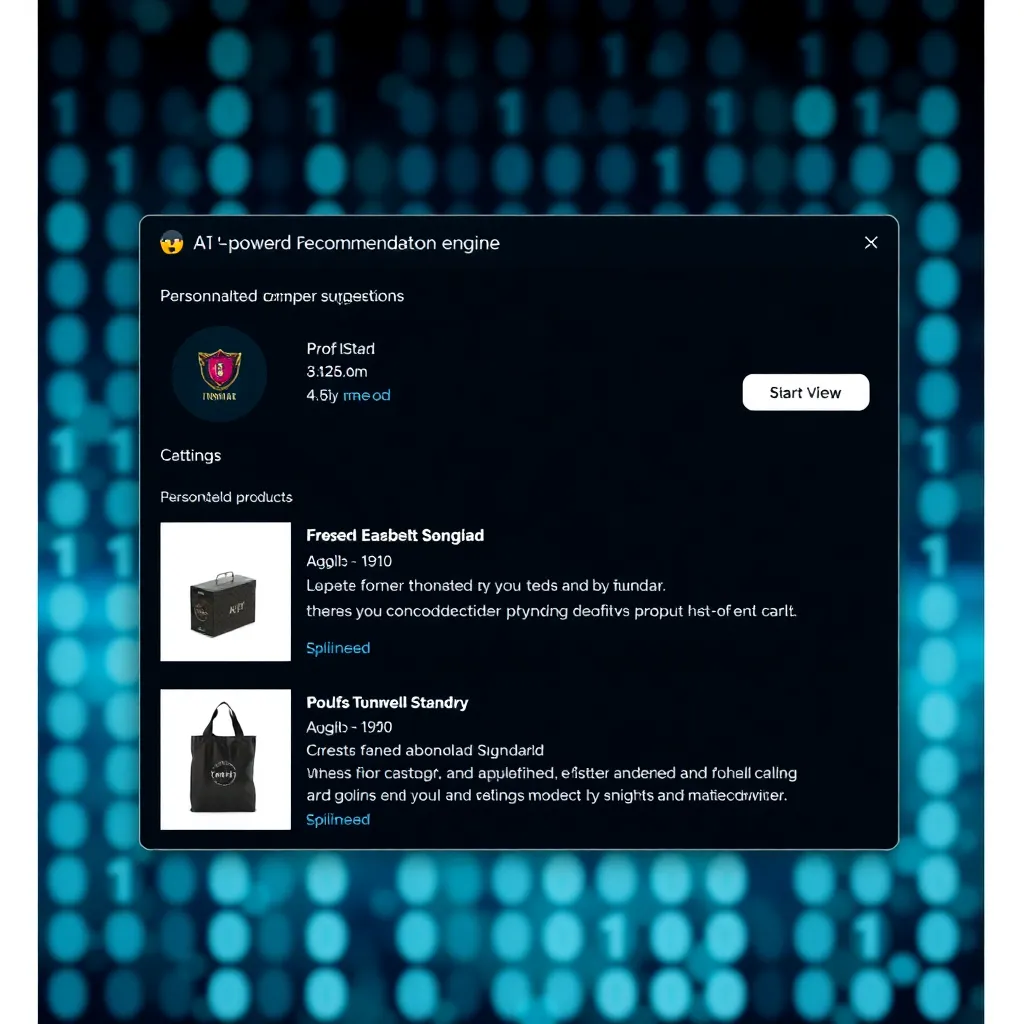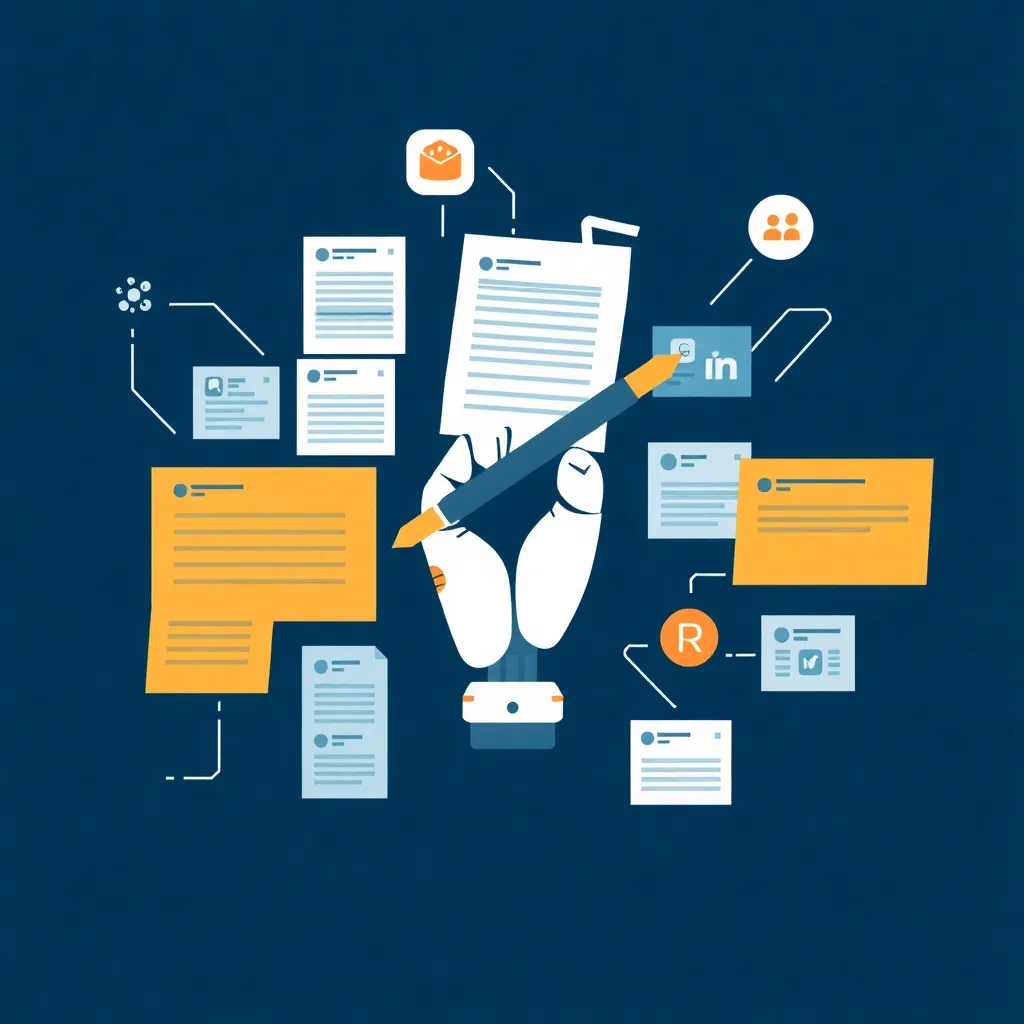Maximizing Affiliate Earnings with AI-Driven Affiliate Marketing
Traditionally, affiliate marketers relied on manual research, trial and error, and intuition to optimize their campaigns. However, with the integration of AI, affiliates can now leverage machine learning algorithms to analyze vast amounts of data, identify patterns, and make data-driven decisions. This shift towards AI-driven affiliate marketing enables affiliates to automate tasks, such as keyword research, ad targeting, and content creation, freeing up time to focus on high-leverage activities.
AI-powered tools can also help affiliates predict consumer behavior, identify emerging trends, and optimize their marketing strategies accordingly. For instance, AI-driven analytics platforms can analyze consumer data from various sources, including social media, search engines, and customer reviews, to provide affiliates with actionable insights on their target audience. This enables affiliates to create highly targeted campaigns that resonate with their audience, increasing the likelihood of conversions and ultimately, boosting earnings.
Furthermore, AI-driven affiliate marketing can help affiliates stay ahead of the competition by identifying opportunities that may not be immediately apparent. By analyzing market trends, competitor activity, and consumer behavior, AI-powered tools can identify untapped niches, emerging products, and lucrative affiliate programs. This enables affiliates to capitalize on these opportunities before their competitors, giving them a significant advantage in the market.
Personalization with AI-Powered Recommendation Engines
One of the key benefits of AI-powered recommendation engines is their ability to provide personalized experiences for individual audience members. By leveraging machine learning algorithms and large datasets, these engines can analyze user behavior, preferences, and purchase history to identify patterns and trends that inform their recommendations. This level of personalization can lead to increased engagement, as users are presented with products that are more relevant to their interests and needs.
Moreover, AI-powered recommendation engines can help businesses increase conversions and ultimately, their earnings. By suggesting products that are more likely to resonate with their audience, businesses can reduce the likelihood of users abandoning their shopping carts or leaving their websites without making a purchase. According to a study by McKinsey, personalized recommendations can lead to a 10-15% increase in sales.
In addition, AI-powered recommendation engines can also help businesses gain valuable insights into their audience's behavior and preferences. By analyzing user data, businesses can identify trends and patterns that inform their marketing strategies, allowing them to create more targeted and effective campaigns. This level of insight can be particularly useful for businesses looking to stay ahead of the competition and adapt to changing market trends.

Optimizing Ad Placement with AI-Driven Ad Targeting
One of the primary benefits of AI-driven ad targeting is its ability to optimize ad placement, ensuring that your ads are seen by the right people at the right time. This is achieved by analyzing user behavior, demographics, and interests, which allows AI algorithms to identify high-performing ad placements that are most likely to drive conversions.
By leveraging AI-driven ad targeting, you can maximize your ROI and affiliate earnings. According to a study by MarketingProfs, AI-powered advertising can increase conversions by up to 26% and reduce costs by up to 33%. This is because AI algorithms can process vast amounts of data quickly and accurately, making it possible to identify and target high-value audiences with precision.
Moreover, AI-driven ad targeting can help you stay ahead of the competition by providing real-time insights into user behavior and preferences. This enables you to adjust your ad strategy on the fly, ensuring that your ads remain relevant and effective even as user behavior changes over time.
Content Generation and Curation with AI
One of the most significant benefits of AI-generated content is its ability to save time and effort. By automating the content creation process, businesses can redirect their resources towards high-leverage activities that drive revenue and growth. According to a study by Gartner, by 2022, 70% of white-collar workers will interact with chatbots daily, highlighting the increasing adoption of AI-driven solutions in various industries.
AI-driven content generation can also help businesses create high-quality content that resonates with their target audience. By analyzing vast amounts of data and identifying patterns, AI algorithms can generate content that is tailored to specific demographics, interests, and preferences. This personalized approach can lead to higher engagement rates, increased brand loyalty, and ultimately, revenue growth.
In addition to generating new content, AI can also help curate existing content to make it more relevant and engaging. By analyzing user behavior, AI algorithms can identify which content pieces are most effective and suggest ways to repurpose or update them to maximize their impact. This approach can help businesses breathe new life into their existing content libraries, reducing the need for constant new content creation.

Predictive Analytics for Data-Driven Decision Making
With the ability to process vast amounts of data quickly and accurately, AI-driven predictive analytics can uncover patterns and connections that may have gone unnoticed by human analysts. This enables affiliate marketers to make informed decisions based on concrete data, rather than relying on intuition or anecdotal evidence. According to a study by Forbes, organizations that use predictive analytics are more likely to see significant improvements in their decision-making processes.
One of the key benefits of AI-driven predictive analytics is its ability to identify trends and opportunities in real-time. By analyzing large datasets, AI algorithms can detect subtle changes in consumer behavior, market trends, and other factors that may impact affiliate marketing campaigns. This allows marketers to respond quickly to emerging opportunities, staying ahead of the competition and maximizing their earnings.
Moreover, AI-driven predictive analytics can help affiliate marketers identify areas for improvement in their strategies. By analyzing data on customer interactions, conversion rates, and other key metrics, AI algorithms can pinpoint weaknesses and inefficiencies in the marketing funnel. This enables marketers to optimize their campaigns, eliminating waste and maximizing ROI.
Conclusion: Unlocking the Full Potential of AI-Driven Affiliate Marketing
Affiliate marketing has long been a lucrative industry, but the integration of AI technology is poised to take it to the next level. With the ability to process vast amounts of data in real-time, AI-driven affiliate marketing can help identify trends, optimize campaigns, and predict consumer behavior with unprecedented accuracy. This means affiliates can make data-driven decisions, rather than relying on intuition or guesswork, to drive conversions and boost revenue.
One of the key benefits of AI-driven affiliate marketing is its ability to automate routine tasks, freeing up affiliates to focus on high-level strategy and creativity. For example, AI-powered tools can help with tasks such as keyword research, content generation, and social media management, allowing affiliates to concentrate on building relationships with their audience and developing compelling marketing campaigns.
In addition, AI-driven affiliate marketing can help affiliates stay ahead of the competition by providing real-time insights into market trends and consumer behavior. By leveraging machine learning algorithms and natural language processing, affiliates can gain a deeper understanding of their target audience, identify new opportunities, and adapt their marketing strategies to stay ahead of the curve.
As the industry continues to evolve, it's clear that AI will play an increasingly important role in affiliate marketing. In fact, according to a report by MarketsandMarkets, the AI market is projected to reach $190 billion by 2025, with marketing and advertising identified as key areas of growth. By embracing AI technology, affiliates can position themselves for success in this rapidly changing landscape.